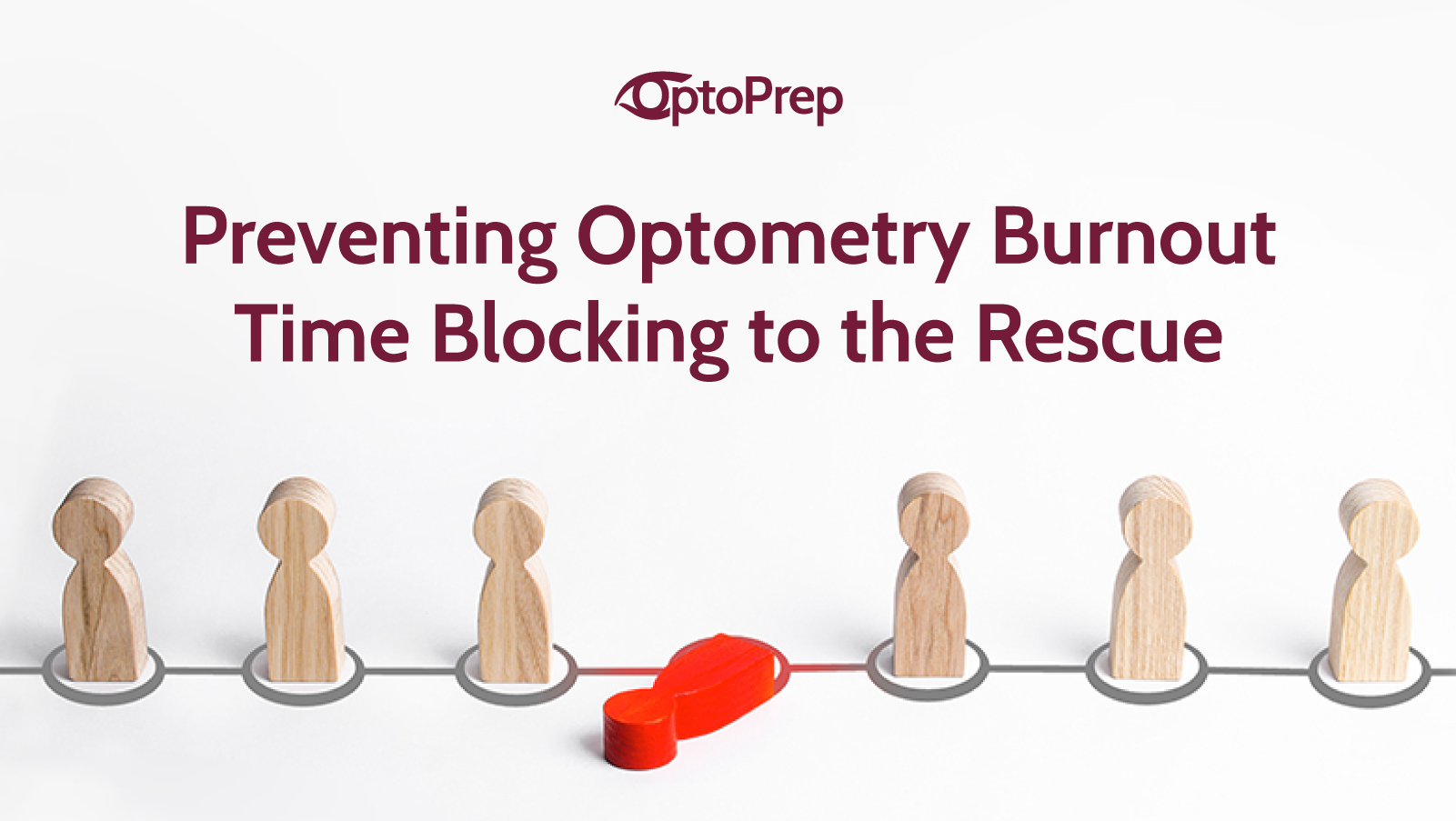
 If you don't control your time, your time will control you. This is relevant now more than ever before. Managing your schedule in optometry school can be very challenging. In previous blog posts, I’ve mentioned the importance of time management and keeping a detailed calendar of school, personal, and work activities, but here’s how to take your detailed calendar to the next level!
If you don't control your time, your time will control you. This is relevant now more than ever before. Managing your schedule in optometry school can be very challenging. In previous blog posts, I’ve mentioned the importance of time management and keeping a detailed calendar of school, personal, and work activities, but here’s how to take your detailed calendar to the next level!
Time blocking is a method of time management where you divide your day into blocks of time. This means blocking off a set amount of time for each daily task you need to complete. For example, instead of reading and replying to emails multiple times throughout the day as you go, schedule one or two time blocks of however long you need to read and reply to your emails that day without distractions.
So how do you decide how to prioritize your time blocks? It’s simple. For the first week, set approximate time blocks for each task. If the task requires travel, don’t forget to account for travel time. At the end of the day, go through your time blocks and see if there’s anything that remains that you have not accomplished. If there are things that you still need to finish, adjust the time blocks the following day to account for that additional time you’ll need. As you go, you will learn how long it usually takes for you to complete the daily tasks that are typically on your to-do list.
I found time blocking to work best for studying. It’s usually hard to gauge how much time you actually need to get through a certain amount of information, but it will eventually become a lot more clear as you learn about your study strengths and weaknesses. Time blocking really helps with an overlooked part of studying: knowing when to stop. Sometimes when things are very stressful and there’s a lot of material to cover, it’s easy to keep going and assume that your study time is productive. As you time block, remember to give yourself a large enough chunk of the day, but know that allocating too much time can also lead to distractions. Think of your time block as a box, and tell yourself, “I will finish studying for my optics quiz tomorrow between 9:00 and 11:00 AM”. This will help set that goal in your mind and since the end is in sight, you will be les prone to distractions.
Though time blocking is not a novel concept by any means, it has been proven to promote productivity during higher-level work, since all of your mental resources are geared toward one specific task. It can even help with lower-level work, like answering email, by boosting efficiency. If you want to take your time blocking to the next level, try to gauge how much brainpower and attention you need for a specific task, and group it with a task that requires the same amount of attention. As you get more familiar with time blocking, you can also set “themes” for each specific day on your calendar. For example, if you time block your chores, Sunday can be “home day”.
Time blocking will help you create structure in your schedule and manage stressful deadlines, which are very common in optometry school. It can also help you boost productivity so that you have more time for things that you actually want to do. Studies show that having an organized schedule leads to less stress, even if you have the same number of things to do regardless. Stay organized, have fun, and don’t forget to time block your next “self-care” day after exams!
- Dr. Amadian
